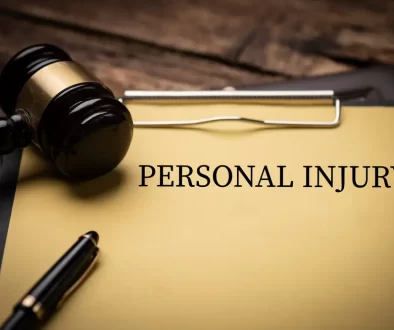How Do You Prove Emotional Distress in Court?
When someone’s actions leave you feeling anxious, traumatized, or emotionally shattered, you may be able to pursue damages for emotional distress—a form of mental suffering that can be just as serious as physical injuries.
But unlike a broken bone or a totaled car, emotional harm doesn’t show up on an X-ray. So how do you actually proveemotional distress in court?
Let’s walk through what it means, how courts evaluate these claims, and what kind of evidence can help your case.
What Is Emotional Distress?
Emotional distress refers to the psychological impact of a traumatic or harmful experience. It can include:
- Anxiety
- Depression
- Insomnia or nightmares
- Panic attacks
- Post-traumatic stress disorder (PTSD)
- Loss of enjoyment of life
- Shame, humiliation, or fear
You can sue for emotional distress on its own in some cases, or as part of a personal injury or harassment lawsuit.
Two Main Types of Emotional Distress Claims
- Negligent Infliction of Emotional Distress (NIED):
This applies when someone causes you emotional harm through carelessness or negligence, even if they didn’t mean to hurt you (e.g., witnessing a loved one injured in a car accident caused by a reckless driver). - Intentional Infliction of Emotional Distress (IIED):
This involves deliberate or outrageous conduct intended to cause emotional harm (e.g., threats, stalking, or abuse).
What the Court Looks For
To successfully prove emotional distress, you generally need to show:
- The defendant acted wrongfully (negligently or intentionally)
- You suffered genuine emotional harm
- There is evidence linking the defendant’s actions to your distress
5 Key Ways to Prove Emotional Distress
1. Medical or Psychological Records
- Seeing a doctor, therapist, or psychiatrist is one of the strongest ways to support your claim.
- Diagnoses like PTSD, anxiety, or depression documented by a licensed professional carry significant weight.
2. Expert Testimony
- Mental health experts can testify about the severity of your condition and how it relates to the incident.
- They may explain how trauma typically affects individuals in similar situations.
3. Personal Testimony
- You’ll likely need to explain how your life has changed since the incident.
- This can include sleep issues, panic attacks, changes in behavior, or difficulty at work or in relationships.
4. Testimony from Friends, Family, or Colleagues
- People close to you can corroborate changes in your mood, behavior, or mental state.
- Their outside perspective can make your claims more credible.
5. Documentation
- Keep a journal of your symptoms, therapy sessions, and how the distress affects your daily life.
- Emails, texts, or other communication showing your emotional reaction can also help.
Challenges in Proving Emotional Distress
Unlike physical injuries, emotional pain is subjective and harder to quantify. Courts are cautious about awarding damages without clear evidence. Your claim will be stronger if it’s accompanied by:
- Physical symptoms (e.g., weight loss, hair loss, panic attacks)
- Medical or psychological treatment
- Tangible effects on your life (e.g., missed work, isolation, breakdown in relationships)
How Much Can You Recover?
Damages for emotional distress vary based on:
- Severity of the emotional harm
- Duration of the suffering
- Evidence of impact on your life
- Whether the defendant acted intentionally or negligently
In some cases, emotional distress damages can be a significant portion of a personal injury settlement or verdict.
Final Thoughts
Emotional distress is real—and the law recognizes that. But proving it in court requires preparation, documentation, and often the help of medical professionals and attorneys.
If you believe you’ve suffered emotional harm due to someone else’s actions, talk to a personal injury or civil attorney. They can guide you through your options and help you build a strong case.
Need legal help? In California, navigating legal challenges, whether they involve personal injury, workers’ compensation, criminal defense or civil litigation, can be overwhelming. Khoury Law Group is here to provide the critical legal support you need. As a leading advocate for individuals facing legal battles, our experienced attorneys understand the complexities of the legal system and are committed to fighting for your best interests. With personalized legal strategies and compassionate support, we are dedicated to achieving the justice and compensation you deserve.
CONTACT US FOR HELP. Call us at (888) 354-6879 or fill out the form on our Contact page.





